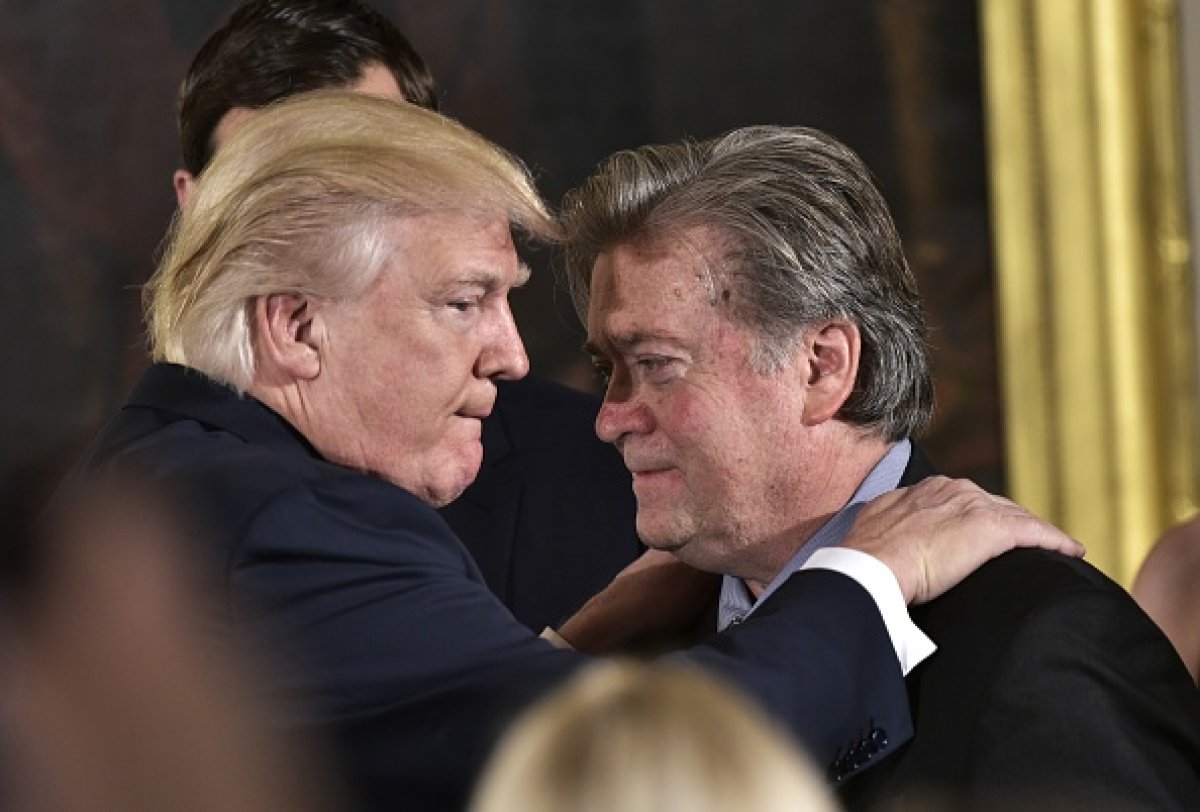Former President Donald Trump is attempting to block Congress' investigation into the January 6 Capitol riot by asserting executive privilege for both himself and former adviser Steve Bannon.
On Monday, Trump's efforts to defy a House select committee's subpoenas became even more contentious after President Joe Biden rejected his predecessor's privilege claim for a second time. Biden informed the National Archives that he has no plans to invoke executive privilege over another batch of Trump documents being sought by the committee, which is investigating the riot.
"President Biden has determined that an assertion of executive privilege is not in the best interests of the United States, and therefore is not justified, as to the documents provided to the White House on September 16, 2021, and September 23, 2021," White House counsel Dana Remus wrote in a letter obtained by CNN. "Accordingly, President Biden does not uphold the former President's assertion of privilege."
Biden's actions are a notable break with tradition because presidents typically support a predecessor's claims of executive privilege. Many have questioned whether Trump and his former officials will be able to successfully cite executive privilege to avoid cooperating with Congress.
Three other top Trump officials—Dan Scavino, Mark Meadows and Kash Patel—who are now private citizens have also been subpoenaed for information related to the Capitol attack.
The executive privilege argument may be particularly weak for Bannon, who has been held in criminal contempt by the House panel, because he was not serving in the administration at the time of the riot, unlike the other three.
As the clash between Trump and Biden escalates amid a congressional investigation, who can assert executive privilege and what does that power allow?

Executive privilege is the right of the president and other officials in the executive branch to withhold certain forms of confidential communication from Congress or the courts.
Asserting this power would allow the president and his staffers to resist some subpoenas or other oversight action in order to prevent impairing government functions, as part of the separation of powers doctrine.
While Trump repeatedly vowed to utilize executive privilege while he was in office, it remains unclear if the protection is retained by presidents once they leave the Oval Office.
Both Democrat and Republican presidents have invoked executive privilege in the past—the most notable case being Richard Nixon during the Watergate scandal—but because cases involving such protections take extremely long to progress in the courts, cases may not be resolved until the president has left the office.
The Supreme Court has ruled that executive privilege is not an absolute privilege but rather a qualified one that must yield if there is a compelling need for the information on Congress' part.
Executive privilege is to be granted only if an attorney general can demonstrate that Congress' need for the information is not sufficient to deny that privilege, according to the opinions of previous AGs.
Trump has already filed a lawsuit to prevent an earlier batch of documents from reaching the House committee after Biden refused to intervene.
Legal experts say Biden will have the ultimate say over whether the Trump documents will be protected by executive privilege. But if Republicans take control of the House or Senate following the 2022 midterms, the requests for Trump to hand over those documents may end.
Uncommon Knowledge
Newsweek is committed to challenging conventional wisdom and finding connections in the search for common ground.
Newsweek is committed to challenging conventional wisdom and finding connections in the search for common ground.
About the writer
Katherine Fung is a Newsweek reporter based in New York City. Her focus is reporting on U.S. and world politics. ... Read more
To read how Newsweek uses AI as a newsroom tool, Click here.








